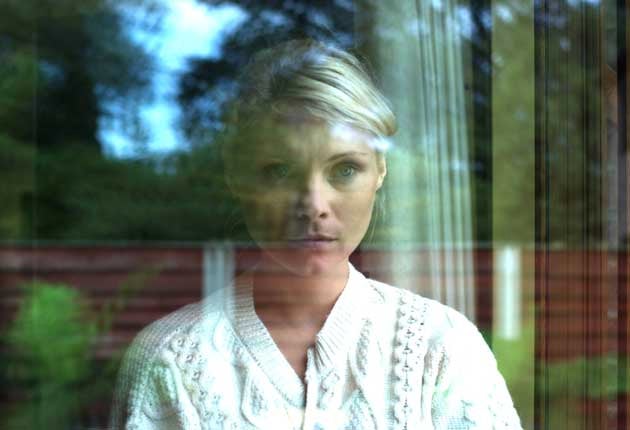Kill List, Ben Wheatley, 96 mins (18)
A genre-mashing British horror film set in suburbia is full of brutality and menace, but beneath its violence lies a far more shocking truth about everyday life

Up and coming British director Ben Wheatley is developing a very idiosyncratic, distinctly troubling voice.
To some degree, his films resemble known quantities – strange but true, you could plausibly compare his Kill List to films by both Mike Leigh and David Lynch. Even so, don't be surprised if you soon hear people using the epithet "Wheatleyesque".
Wheatley's debut Down Terrace was an inspired miniature – a story about a crime family, shot almost entirely in one cramped house. It was a film that didn't just treat crime as black comedy, but conjured up its own troubling picture of human nature. Kill List consolidates its low-budget approach, but stakes out new territory besides – in a way that doesn't entirely pay off, but is audacious. Be warned, though, this is strong meat.
Kill List is a sort of crime thriller that mutates into nightmare story. But before that, Wheatley and writing partner/co-editor Amy Jump convince us that we're in familiar kitchen-sink land. The film begins with a row between a suburban married couple, Jay (Neil Maskell) and Shel (MyAnna Buring), about the finances that he has squandered on a jacuzzi. We're in the grip of bitter domestic psychodrama, as the couple taunt each other in oppressive close-up, with their young son looking on. The evening continues with the arrival of Jay's old friend Gal (Michael Smiley) and his new girlfriend Fiona (Emma Fryer). Dinner doesn't go well – it's steeped in Pinterish unease, all gaffes and muttered recriminations.
The film soon shifts into apparent genre mode, as we realise what ex-soldiers Jay and Gal now do for a living. They're hit men, with a new list of targets to dispatch. But things look ominous from the moment they meet their client – Struan Rodger, resembling a suavely degenerate uncle to Bill Nighy. Then, when the killers set off on their rounds, we're in a world of modern English mundanity. Jay and Gal stay in a series of bland, beige motorway hotels; take an interest in the soaps and shampoos on offer; and bunk down with Andy McNab-style paperbacks on their bedside tables.
Things really turn strange once the killings begin. The first target is a priest, staked out in a brilliantly concise, telegraphic sequence. The second is a dealer in a brand of porno-graphy that reduces even the hardened Jay to horrified tears – causing him to (be warned) respond accordingly.
While matters turn ever more brutal, the enigmas pile up. Someone is keeping a close eye on the two killers, but why? What happened to Jay in Kiev? And what is the symbol that Fiona has carved on the back of the couple's bedroom mirror? Logical explanations, though, are less interesting than the overall mood of menace that Wheatley instils in this ordinary world of suburban discontent – not least, through Jim Williams's abrasively oppressive score. Quite apart from intimations of occult doings, there's a more enigmatic tone of otherness at work: the film reminded me of Hilary Mantel's Beyond Black, a novel in which the supernatural is located in the landscape of industrial hinterlands and Little Chefs.
Underlying Kill List is the sobering idea that there might be some things even more horrific than the threat of men with guns – that the truly unthinkable might be normality itself, with its attendant moral vacancy. But when Kill List finally unveils its more strident nightmare imagery, it too obviously echoes a certain much-loved British horror film. It's easy to feel reassured by the terror taking such recognisably freakish form – and as a result, the story's ghastly pay-off feels awkwardly muffed.
But the social satire is consistently incisive. And the performances are terrific, with the cast making their own contributions to the inconsequential chatter with which these characters deceive themselves they're living acceptable existences. Buring's Shel is icily resentful beneath the femininity she wears like armour, and Michael Smiley plays it cheerfully careworn, as if there were no contradiction between Gal's gruff affability and his easy acceptance of a death as a trade. Meanwhile Neil Maskell's character exudes a bloated unease, like a man slowly rupturing from within. Jay is an arresting, terrifying creation, an essentially clueless man of the pettiest ambitions. When he vents his fury on the pornographer, it's an utterly horrifying sequence – not only because of the graphic violence, but because Maskell gives an authentic impression of a soul in torment.

Watch Apple TV+ free for 7 days
New subscribers only. £8.99/mo. after free trial. Plan auto-renews until cancelled

Watch Apple TV+ free for 7 days
New subscribers only. £8.99/mo. after free trial. Plan auto-renews until cancelled
You'll emerge from Kill List either asking, "What the hell was that?"; or dazzled by its intensity; or needing a stiff drink. Or any combination of the above. One way or another, expect Kill List to trouble you – in the way only the everyday can, when certain films contrive to rip its surface away.
Next Week:
Jonathan Romney reports from the Venice Film Festival and reviews Post Mortem, a chiller from Chile
Subscribe to Independent Premium to bookmark this article
Want to bookmark your favourite articles and stories to read or reference later? Start your Independent Premium subscription today.

Join our commenting forum
Join thought-provoking conversations, follow other Independent readers and see their replies